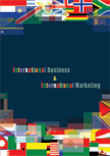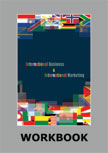Singapore: Past Perfect, Future Tense?




|
|
ICMR HOME | Case Studies Collection
Case Details:
Case Code : BENV008
Case Length : 27 Pages
Period : 1959-2006
Pub Date : 2006
Teaching Note : Available
Organization : -
Industry : Diversified
Countries : Singapore
To download Singapore: Past Perfect, Future Tense? case study
(Case Code: BENV008) click on the button below, and select the case from the list of available cases:

Price:
For delivery in electronic format: Rs. 500 ;
For delivery through courier (within India): Rs. 500 + Rs. 25 for Shipping & Handling Charges
»
Business Environment Case Studies
» Case Studies Collection
» ICMR Home
»
Business Environment Short Case Studies
» View Detailed Pricing Info
» How To Order This Case
» Business Case Studies
» Case Studies by Area
» Case Studies by Industry
» Case Studies by Company
Please note:
This case study was compiled from published sources, and is intended to be used as a basis for class discussion. It is not intended to illustrate either effective or ineffective handling of a management situation. Nor is it a primary information source.
|
|
<< Previous
Introduction Contd...
|
Towards this end, the GoS chose to focus its efforts on developing Singapore as
a hub for service industries like education, health care services, arbitration
and legal services, digital technology, biotechnology (research), and tourism.
However, the country faced several challenges like the emergence of competing
regional hubs, growth in illegal activities, and the threat from global
terrorism. Also, Singapore came in for a lot of criticism for its record on
human rights, and for curbing the freedom of the press and the right to
information.
Some political analysts felt that Singapore's political system was
not truly democratic. Some analysts even took the view that with the growth and
prosperity of other Asian economies, Singapore would cease to be a hub and would
eventually decline in importance.
|
|
Background Note
Singapore was originally a small fishing village. References to the region
date back to the third century, when the Chinese called it Pu-luo-chung,
meaning 'island at the end of a peninsula' (See Exhibit I for Key
Information on Singapore). According to historical accounts, the Chinese
started living in the island in greater numbers in the 13th century. In the
14th century, the island came to be known as Singapura, Malay for 'Lion
City'. The name later evolved to become Singapore.
|
|
From the
16th century to the early 19th century, Singapore remained a part of the
Sultanate of Johor, a small kingdom in present day Malaysia.
In 1819, the British East India Company needed a trading post to conduct
trade with China. Singapore, with its natural, deep harbor and strategic
location (for ships traveling between East Asia and Europe), was an
ideal choice. So, the East India Company entered into a treaty with the
Sultan of Johor to set up a trading post at Singapore. Over time,
Singapore became a major port of call for ships. In 1824, Singapore
became a crown colony of Britain. In 1826, Singapore, together with
Malacca and Penang, came under the control of British India. |
In the mid 20th century, Singapore continued to grow as a regional entrepôt . This led to the growth of storage and warehousing, shipping, and banking services and Singapore gradually gained expertise in trade, transport, and finance...
Excerpts >>
|
|



